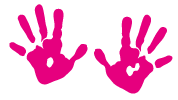
Björn: 012 661 5445 / 072 623 9556 | bjorn.opper@gmail.com
Ancois: 012 661 5445 / 082 336 4843 | ancois.opper@gmail.com
3 Ashford Street, Midstream Estate




~ Johann Wolfgang von Goethe
WHAT WE DO
We, Björn and Ancois Opper, would like to welcome you to our private practice, Opper & Opper Psychologists, which is based in Midstream Estate (Centurion/Midrand), Pretoria. This website will provide you with a better understanding of who we are and what our work as educational psychologists entails. Please feel free to contact us for any additional information by using the contact details provided.
What is an Educational Psychologist?
To qualify as Educational Psychologists, we received specialised training in both the psychological and educational fields. We apply our integrated skills to assist educators, parents, children, teens and young adults, as well as other health care professionals, through collaboration, facilitation and support when working with pre-school, primary and high school children as well as tertiary students.
Our role expands to include various aspects of development, including social, cognitive, educational and emotional aspects. We aim to develop effective supportive techniques by means of assessment, collaboration and therapeutic interventions.
Within the school context, we are concerned with enhancing the effectiveness of procedures and structures relating to educational and learner support. We therefore act as advocates for children and teens and the school community.
Ethical obligations
As members of the Health Professions Council of South Africa, we are committed to providing a professional service by adhering to the following ethical principles:
- Respect for the dignity of individuals
- Professional competency and responsibility
- Integrity in professional relationships
- Confidentiality
Dr Björn Opper
Practice number: 0249319
HPCSA number: PS 0097632
Dr Ancois Opper
Practice number: 0214078
HPCSA number: PS 0094447
What do our assessments involve?
Assessments are aimed at generating an understanding of learners’ needs, as well as their assets, in order to determine the type of support that is needed. We use a variety of techniques at an individual, group or family level to assess the various areas of functioning.
These techniques are usually enjoyable and assessments are conducted in a quiet and encouraging atmosphere. Assessment practices, which involve the use of mainly standardised media and include observation and personal accounts, are aimed at obtaining a holistic image of the learner.

Assessment provides us with a better idea of the needs of children and teens with regard to the following:
- Emotional and social development
- Behaviour
- Intelligence and achievement
- Academic development, e.g. reading, writing, spelling, mathematics, listening skills, learning style and concentration (ADD/ADHD). We also test for dyslexia as well as screen for dyscalculia.
- Exam accommodations/concessions (IEB & GDE)
- School readiness
- Family-related concerns
- Career interests, aptitude and personality (career guidance)
- Subject choices (subject choice testing)
Therapy and support
When children and teens experience difficulties, determining the best way to help them can be challenging. This problem can be solved through the use of psychotherapy, which enables them to discover a safe place where they can explore their thoughts, feelings and behaviours.
In addition to providing therapeutic, emotional and learning support to individuals who are struggling with a variety of difficulties, we also provide parent guidance.
The problems experienced can range from depression, trauma, dealing with loss/divorce, challenging behaviour, bullying, self-esteem, social/emotional, stress and anxiety to developmental delays, physical impairments, learning difficulties (reading/spelling/writing) and lack of concentration.
Most frequently used therapy techniques include:
Gestalt Therapy
is an experiential form of psychotherapy that emphasises personal responsibility. The therapist's approach is to help children to increase or deepen their awareness of themselves and aspects of themselves and their relationships with others by attending to and engaging with them to explore their experiences and to describe what is.
The techniques used within the therapeutic relationship include the empty-chair technique, drawings, making things, puppet shows and storytelling, and are designed to help children to work through and move beyond painful emotional blocks. This is an ongoing process that allows them to explore new behaviour – initially in the context of the therapeutic relationship and later, as and when appropriate, in the outside world.

Play therapy
is a form of psychotherapy that uses play to communicate with and help children (generally aged between 3 and 11) to prevent or resolve psychosocial challenges. It provides a way for them to express their experiences and feelings through a natural, self-guided and self-healing process.
As children’s experiences and knowledge are often communicated through play, it becomes an important vehicle for them to know and accept themselves and others. This is believed to help them towards better social integration, growth and development, emotional modulation and trauma resolution.

Biofeedback
is an enjoyable, interactive form of therapy that involves training children to control physiological processes such as muscle tension and heart rate. By using an ear sensor that plugs into the USB port on the computer, they can watch in real time how their thoughts and emotions affect their heart rates.
Their heartbeat patterns tell them about the emotions they are experiencing, be it fear, anger, appreciation or happiness. These patterns are like mirror images of their emotions and this real-time feedback enables them to more effectively manage their levels of stress/anxiety and negative emotions. They are taught how to breathe, relax and do simple visualisation exercises, which will enable them to intentionally shift to a positive emotional state when faced with feelings of anxiety or stress.
Biofeedback therapy
Gestalt therapy
Play therapy

Hypnotherapy
refers to the use of hypnosis for the treatment and alleviation of a number of somatic, psychosomatic and psychological conditions.
Hypnosis is a state of physical and mental relaxation – an altered state of consciousness into which individuals allow themselves to enter so that desired beneficial suggestions may be given directly to the subconscious mind, emphasising new responses, thoughts, attitudes, behaviours or feelings.

Solution-focused (Brief) Therapy
is based on short-term counselling and, as the name indicates, the focus is on solutions rather than on the problems.
It also emphasises behaviour change. It is very goal directed and uses children’s strengths as a foundation on which to build their confidence in their ability to make positive changes in their lives.
This form of therapy thus involves developing a vision of the future, determining what skills, resources and abilities children already possess, and then enhancing those in order to attain the desired outcome.
Rational Emotive Behavioural Therapy (REBT)
can help children/teens to manage their problems by changing the way they think and behave.
It is most commonly used to treat anxiety and depression, but can also be useful for the treatment of other psycho-social problems. While CBT cannot remove problems, it can help children/teens to deal with them in a more positive way. It is based on the concept that thoughts, feelings, physical sensations and actions are interconnected, and that negative thoughts and feelings can trap a person in a vicious cycle. By applying CBT we aim to help children/teens to crack this cycle by breaking down overwhelming problems into smaller parts and showing them how to change negative patterns to improve the way they feel.

Solution-focused therapy
Hypnotherapy
Rational emotive behavioural therapy

Cognitive behavioural therapy
Although we are trained in various therapeutic techniques, we follow a client-fit approach. We always aim to remain sensitive to your child’s individual abilities and needs and to facilitate the therapeutic process with understanding, warmth, acceptance and encouragement.
Cognitive behavioural therapy (CBT)
can help children to manage their problems by changing the way they think and behave. It is most commonly used to treat anxiety and depression, but can also be useful for the treatment of other psycho-social problems. While CBT cannot remove problems, it can help children to deal with them in a more positive way. It is based on the concept that thoughts, feelings, physical sensations and actions are interconnected, and that negative thoughts and feelings can trap a person in a vicious cycle. By applying CBT we aim to help children to crack this cycle by breaking down overwhelming problems into smaller parts and showing them how to change negative patterns to improve the way they feel.

Learning support/interventions include:
- In our practice we aim to identify specific barriers to learning through our assessment measures and using this information we can more effectively make suggestions in terms of which programs (be it for reading, concentration, working memory, mathematics, spelling etc.) will work best for your child/teen based on his/her specific learning profile
- With regard to study skills and methods we use our Study Buddy Programme places the emphasis on identifying individual learning preferences and implementing them in relevant study methods to facilitate more effective retention and recall of what is learnt. Other study skills, such as planning, organisational skills and motivation can be explored and addressed.
Parent involvement
It has been established that collaborative efforts contribute to higher levels of support, cooperation and trust. Parent involvement is strongly encouraged and an effort will be made to regularly invite parents to discuss their children’s progress during the intervention process.
When and how do parents become involved?
- Once a referral has been made, parents will be invited to a pre-assessment discussion as information from various sources is required in order to create a holistic picture of the child/teen.
- Parents will be consulted at all times and involvement with your child will only be initiated once the necessary parental permission has been obtained.
- Once the assessment has been completed, parents will be asked to attend a follow-up session during which a written report and/or verbal feedback will be provided.
- If therapeutic intervention is required, parents may be asked to collaborate, or to attend support sessions in conjunction with the therapy presented to their child.
- Parental input at home is essential to ensure the success of any therapeutic intervention!
Back to Top
